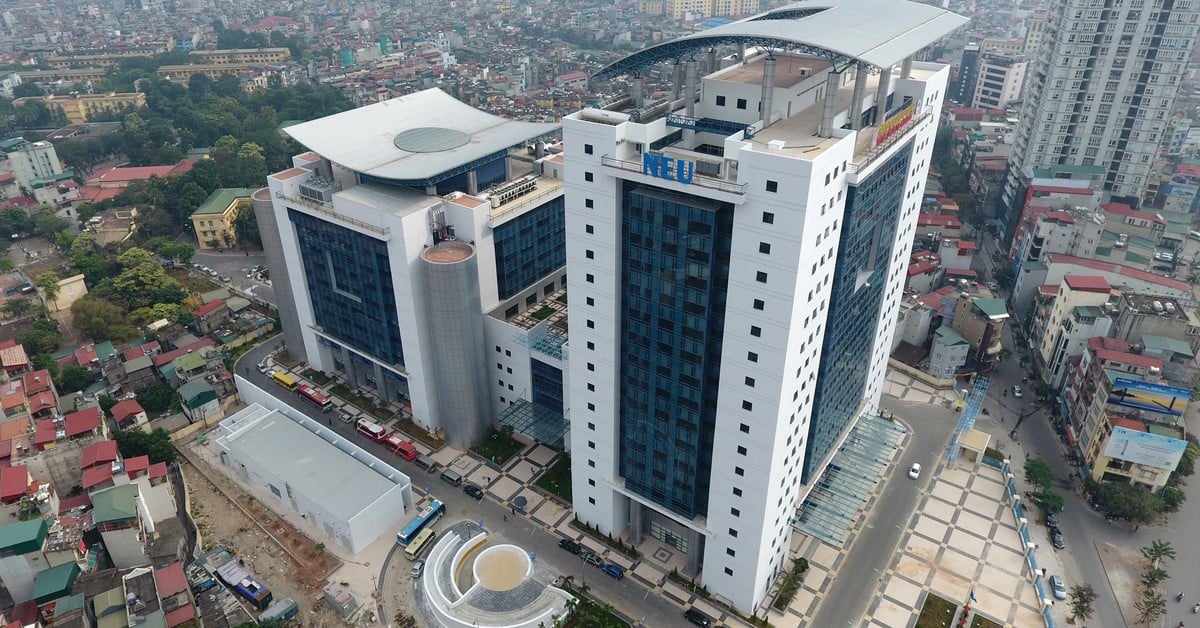
Experts recommend regular dental check-ups to protect oral health - Illustration: Getty
Complex pathogenesis
Sharing about this issue, Dr. Pham Thi Thu Hang, Department of Dentistry, 108 Central Military Hospital, said that jawbone necrosis can cause pain, discomfort and greatly affect the patient's quality of life.
Dr. Hang said the pathogenesis of osteonecrosis of the jaw is not yet fully understood, but several factors are thought to play an important role. Bisphosphonates inhibit bone resorption, reduce bone remodeling, and reduce blood supply to the bone.
This can lead to irreversible bone damage, especially in the jawbone and most commonly the lower jawbone, which has high bone density and is frequently subjected to chewing force.
Several risk factors have been identified that are associated with the development of osteonecrosis of the jaw including high-dose or prolonged use of bisphosphonates, of which several are common.
People who have had tooth extraction or other dental surgery such as implant placement, dental cyst surgery, and poor oral hygiene are also risk factors.
In addition, people with systemic diseases such as diabetes, cancer, immunodeficiency, smoking... are also at risk of jaw necrosis.
Ms. Hang said that the diagnosis of osteonecrosis of the jaw is based on clinical symptoms, physical examination and imaging. Common symptoms include pain, swelling, exposed bone and infection in the jaw area, especially after surgical intervention.
Currently, treatment of osteonecrosis of the jaw is often combined with the use of antibiotics to control infection, mouthwash with antiseptic solution. Surgical removal of necrotic bone (in severe cases); stopping or reducing the dose of bisphosphonate (if possible).
How to prevent disease?
To prevent osteonecrosis of the jaw, Dr. Hang recommends assessing the risk of osteonecrosis of the jaw before starting treatment with bisphosphonates.
Also maintain good oral hygiene, have regular dental checkups, and avoid invasive dental procedures if possible. Notify your doctor of any unusual symptoms in the jaw area.
"Osteonecrosis of the jaw is an area of ongoing research. Scientists are working to better understand the pathogenesis, risk factors, and more effective treatments.
There may be new advances in the prevention and treatment of osteonecrosis of the jaw in the future, which could improve the quality of life for patients taking bisphosphonates.
Being aware of the risk factors, symptoms, and prevention methods is important to reduce your risk of developing the disease.
Close coordination between specialists, dentists and patients is needed to ensure the safe and effective use of bisphosphonates," Dr. Hang emphasized.
Source: https://tuoitre.vn/thuoc-dieu-tri-loang-xuong-hoac-ve-sinh-rang-mieng-kem-co-the-gay-hoai-tu-xuong-ham-2025032410054465.htm


![[Photo] Head of the Central Propaganda and Mass Mobilization Commission Nguyen Trong Nghia received the delegation of Nhan Dan Daily](https://vstatic.vietnam.vn/vietnam/resource/IMAGE/2025/3/25/cdb71275aa7542b082ec36b3819cfb5c)


![[Photo] Prime Minister Pham Minh Chinh meets with the Ministry of Education and Training; Ministry of Health on the draft project to be submitted to the Politburo](https://vstatic.vietnam.vn/vietnam/resource/IMAGE/2025/3/25/c0e5c7348ced423db06166df08ffbe54)

![[Photo] Nhan Dan Newspaper Youth Union visits Vietnam Military History Museum](https://vstatic.vietnam.vn/vietnam/resource/IMAGE/2025/3/25/374e4f70a35146928ecd4a5293b25af0)









































































Comment (0)